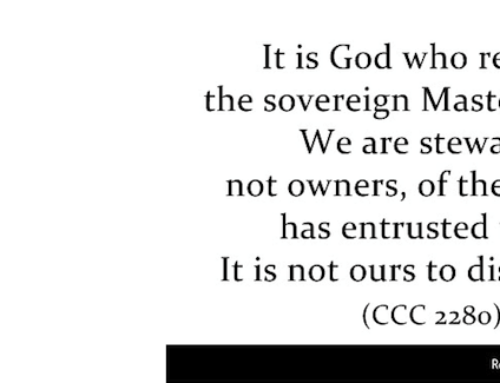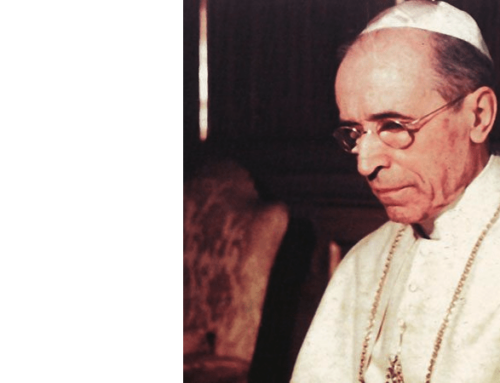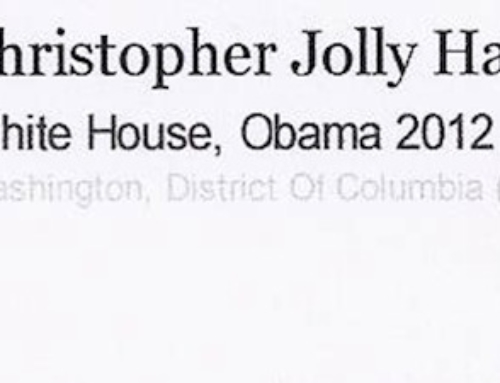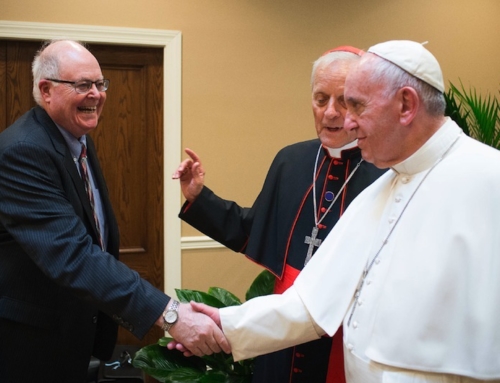Pope John Paul II:
“It is as it was.”
—National Catholic Reporter Online, December 17, 2003
Cardinal Darío Castrillón Hoyos, Prefect of the Congregation for Clergy:
“As I watched this yet unfinished version of the film, I experienced moments of profound spiritual intimacy with Jesus Christ. It is a film that leads the viewer into prayer and reflection, into heartfelt contemplation. In fact, as I told Mr. Gibson after the screening, I would gladly trade some of the homilies that I have given about the passion of Christ for even a few of the scenes of his film. …
“This film is a triumph of art and faith. It will be a tool for explaining the person and message of Christ. I am confident that it will change for the better everyone who sees it, both Christians and non-Christians alike. It will bring people closer to God, and closer to one another. …
—Zenit News Agency, September 18, 2003
Cardinal Geraldo Majella Agnelo, Archbishop of São Salvador da Bahia, Brazil:
“The film is a faithful rendition of Jesus Christ’s passion and death.”
—Associated Press, March 13, 2004
Cardinal Francis George, Archbishop of Chicago:
“I’ve read the Passion narratives of the Lord and contemplated them and prayed over them many, many times, and I’ve never thought of the crucifixion with the images that I received while watching this. I’ll never read the words the same way again.”
—Chicago Sun Times, August 3, 2003
Cardinal George Pell, Archbishop of Sydney, Australia:
“The film is a contemporary masterpiece, artistically and technically. It is not absurd to compare it with the paintings of the Italian master Caravaggio, because of its beauty and drama. …
“Every type of person will come to see it, if for different reasons. Some believers will be affronted. More will have their faith strengthened. Non-believers will find it engrossing, an elemental struggle between good and evil. Those who are searching will be provoked to reflection. …
“It will help outsiders understand why there have been so many martyrs prepared to die for Christ, (more in the 20th century than any other) and why Christianity has such a profound influence in many different cultures after 2,000 years. The call to follow Christ is personal and primal. There was never any medieval morality play with an impact like this film’s.
“The finest sermon on Christ I have heard was by an English layman, Malcolm Muggeridge; but that was a pale contribution beside this.”
—Zenit News Agency, February 24, 2004
The Most Reverend John Foley, President of the Pontifical Council for Social Communications:
“Foley said he had told [ADL Director Abraham] Foxman that he had found nothing in the film that could be interpreted as anti-Semitic. ‘Certainly there are some Jews who call for punishment for Jesus,’ Foley said. But he said the Romans too were depicted harshly.
“‘I had absolutely no thought regarding any responsibility on the part of the Jews. I took it as a meditation on the Passion of Jesus, and my own responsibility and the responsibility of all of us for the suffering and death of Jesus.'”
—Associated Press, February 18, 2004
“From what I could see of the trailers, it seemed to be an excellent film. I don’t think they would be well-founded criticisms because all the material in the film comes directly from the Gospel accounts. There’s nothing in the film that doesn’t come from the Gospel accounts.”
—Zenit News Agency, September 18, 2003
The Most Reverend Charles Chaput, O.F.M., Archbishop of Denver:
“I thought it was an extraordinary work of art and extraordinarily faithful to the gospels. If I was critical of the film’s detractors it’s because I think it’s unwise for any group to try to intimidate either the church or people of Mel Gibson’s faith from speaking very clearly what they believe to be true. You know anti-Semitism is a terrible sin; it’s a sin the church has repented from and will need to continue to repent from if and when there are examples of it in church life. But to clearly proclaim our belief that Jesus is the messiah and that he suffered, died and rose from the dead is for us something we have a duty to proclaim. We can’t be intimidated from proclaiming it.”
—Rocky Mountain News (CO), August 21, 2003
The Most Reverend John F. Donoghue, Archbishop of Atlanta:
“I believe that all people should see this film. And as your bishop, I would urge all Catholics of the Archdiocese of Atlanta to see this film. But do not expect to view it objectively or without being changed. It will not leave you the same person you were before – you will never again not be able to picture the scope of our Lord’s suffering, and the terrible price He paid in order to save us. And consequently, you will never again be able to think of yourself as being innocent, or only relatively involved in the events of His Passion. That is a result of the true artistry that Mel Gibson has brought to the production, along with the work of an amazing cast, and cinematography that elevates this film to a place among the greatest ever made. But most importantly, it is a result of Mel Gibson’s faithful adherence to the words and the spirit of the Gospel.”
—Letter to the Catholics of the Archdiocese of Atlanta, February 19, 2004
The Most Reverend Mario Maulión, Archbishop of Parana, Argentina:
“I was impressed not so much by the painful part, which is really very intense, but the transmission of a message of hope in the Lord, hope of life and a message of fidelity to man and fidelity to the Father.
“I confess that it made an impression on me and moved me profoundly. … What is more, I would say that it shook me spiritually and not only me. After seeing it, together with other brother bishops, we agreed that it shook us.”
—Zenit News Agency, March 21, 2004
The Most Reverend Rubén di Monte, Archbishop of Mercedes-Lujan, Argentina:
“I loved the film. It is fantastically made; it reflects the things on which one has meditated so many times on the Passion of Jesus and responds to what sacred Scriptures tell us.”
—Zenit News Agency, March 21, 2004
The Most Reverend Gaudencio Rosales, Archbishop of Manila
“I think I would recommend it to every Filipino to see it who believes in goodness and accepts the reality of evil.”
—Agence France Presse, March 10, 2004
The Most Reverend Nicholas DiMarzio, Bishop of Brooklyn:
“I will never pray the Stations of the Cross, say the Sorrowful Mysteries of the Rosary or read the passion narratives in the same way ever again.”
—New York Times, March 11, 2004
The Most Reverend Robert C. Morlino, Bishop of Madison:
“Let me take this opportunity to urge all of you and your friends, all Catholics, all Christians, and all people of good will to view Mel Gibson’s film, The Passion, at your earliest convenience. The Holy Father’s reaction to this film amounted to, it is as it was. At the same time, the Holy Father should not be seen on any list of those who have publicly endorsed any given work of art….The violence of the sufferings of Christ as portrayed in the film is nothing other than the violence which He endured for our sins. Regrettably our violent culture and society and world have desensitized all of us to violence, and this film is a powerful antidote to any desensitizing that might have taken place within our Christian hearts to the sufferings of Jesus Christ. And there are many artistic and theological nuances in the film…which give an added depth to the reflection afterward which the film not only provokes but demands from the soul of every viewer, believer and nonbeliever alike.”
—The Madison Catholic Herald, January 29, 2004
The Most Reverend Joseph Galante, Bishop of Camden, New Jersey
I came away deeply touched and profoundly moved. This film is one that must be viewed in a context of faith. For those of us Christian Catholics who have grown up and been formed in the Gospels…this film provides a vivid and graphic meditation on the reality of the passion and death of Jesus. …The passion and death of Jesus can’t be attributed to Jews or Romans or any instruments other than our own sins. This film powerfully and even disturbingly witnesses to the effects of sin and evil. There also is a tender beauty in The Passion of the Christ…we witness the powerful yet tender love between Mary and Jesus. The scene of Jesus being taken down from the cross and placed in Mary’s arms was, for me, a far more powerful Pieta than Michelangelo’s. This is a film that I would recommend to Catholics and to all people of good will as an opportunity to live this Lenten season with greater awareness, with a deeper sense of sorrow and with a greater desire for repentance. I shall meditate on its scenes many times.
—Dallas Morning News, February 25, 2004
The Most Reverend David A. Zubik, Bishop of Green Bay
“Having had the opportunity to view the Mel Gibson film The Passion of the Christ, I found it to be a profoundly moving religious experience. The one thing that crossed my mind as I viewed the film was that any person of faith who came to see the movie would leave with their faith deepened and any person who claimed that they did not have faith and viewed the movie would leave with faith sparked within them. …
“The film is clearly a ‘must see.’ My own personal experience of viewing the film deepens my appreciation of the passion narratives in the four Gospels, meditation on the Stations of Jesus’ cross and, most important of all, an appreciation of the profound presence of Christ within the celebration of the Eucharist.”
—The Compass (Diocese of Green Bay, WI), February 27, 2004
The Reverend J. Augustine Di Noia, O.P., Undersecretary of the Congregation for the Doctrine of the Faith:
“Looking at ‘The Passion’ strictly from a dramatic point of view, what happens in the film is that each of the main characters contributes in some way to Jesus’ fate: Judas betrays him; the Sanhedrin accuses him; the disciples abandon him; Peter denies knowing him; Herod toys with him; Pilate allows him to be condemned; the crowd mocks him; the Roman soldiers scourge, brutalize and finally crucify him; and the devil, somehow, is behind the whole action.
“Of all the main characters in the story, perhaps only Mary is really blameless. Gibson’s film captures this feature of the Passion narratives very well. No one person and group of persons acting independently of the others is to blame: They all are.”
—Zenit News Agency, December 8, 2003
The Reverend Richard John Neuhaus, Editor-in-Chief, First Things:
“It is a gross understatement to say that it is an extraordinary film. It is certainly the best cinematic treatment of the passion or, indeed, of any biblical subject that I have ever seen. I strongly urge everybody to see it.”
—First Things, February 2004
The Reverend Thomas Rosica, Chief Executive Officer, Salt and Light Catholic Media Foundation:
“I rarely leave a theater or a film screening with a strong desire to pray and be silent. That is what I felt this morning as I returned to our offices. ‘The Passion’ is a deeply moving presentation of the final hours of Jesus’ life on earth. …
“I recommend that all those in pastoral ministry, teachers and students of Scripture, and adult Christians view this film at some point. If Gibson’s desire was to allow people to draw closer to Christ through this film, he has accomplished his goal.
“If Gibson wished people to experience a conversion of heart to the nonviolent message of the cross, he has accomplished that as well. …
“‘The Passion’ compels me to reflect on the cost of discipleship.”
—Zenit News Agency, February 6, 2004
Michael Novak, George Frederick Jewett Chair of Religion, Philosophy, and Public Policy at the American Enterprise Institute:
“Gibson’s film is wholly consistent with the Second Vatican Council’s presentation of the relations of Judaism and the Christian Church. …
“Gibson’s version is not divisive or dangerous for Jews. Without preachiness, without external commentary, this cinematic reenactment has the potential to be transformative in powerful, mysterious, and quiet ways. When “The Passion” is released on Ash Wednesday its effect around the world will almost certainly be conciliating, quieting, and calming, for it induces awe at the suffering we inflict upon one another.”
—Weekly Standard, August 25, 2003






